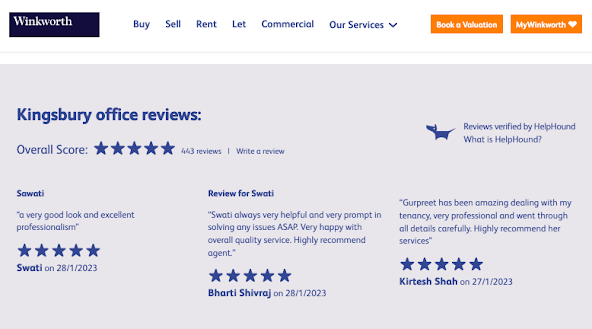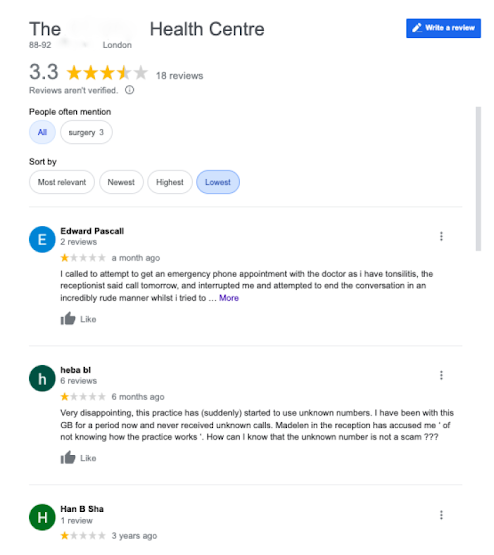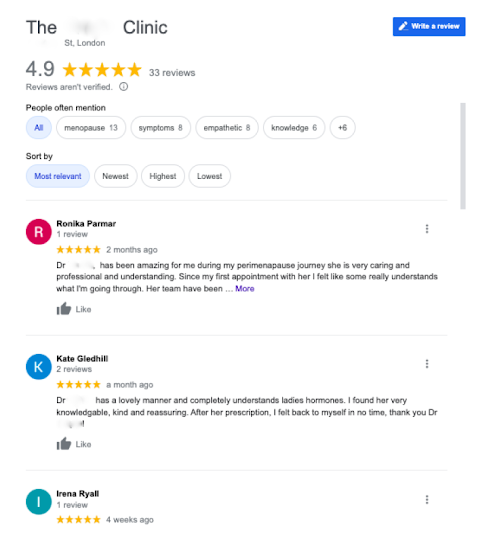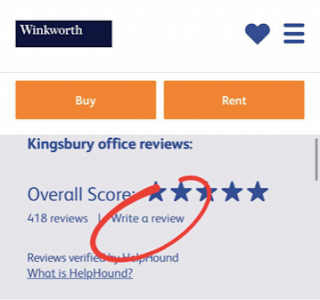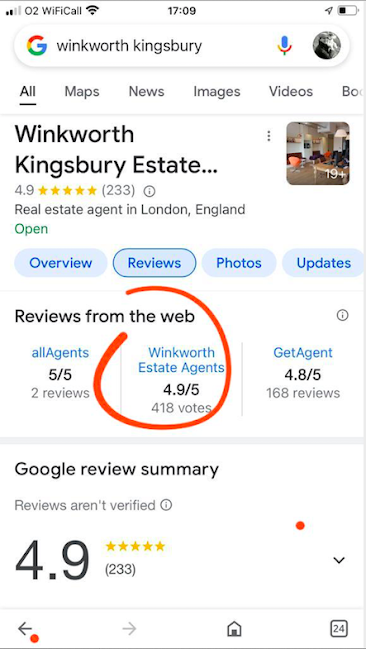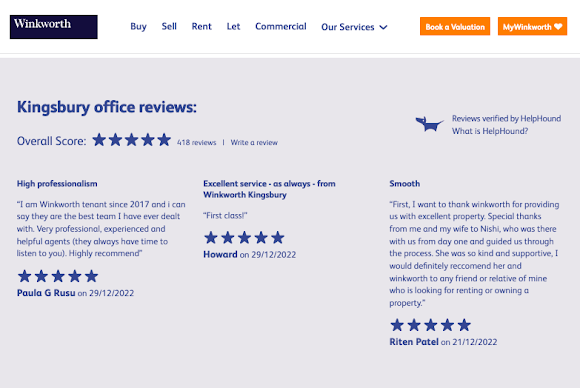The businesses we meet almost always fall into one or more of the following categories when it comes to reviews...
- No Google reviews - usually due to understandable caution (fear of unfair negative reviews, mainly); Read Item 1.
- Less than 100 Google reviews - as above, but the business has mobilised its most loyal customers to write a review. Again - understandable. But, believe it or not, illegal. Read Item 2.
- More than 100 Google reviews. An extension of Item 2. Read Items 2 and 3.
- Using a review site - Trustpilot, Feefo, Yelp, etc.- instead of or alongside Google. Read Item 4.
- Using a review aggregator: a widget that scrapes the web for reviews and displays them on a business's website: Read Item 5.
1. For a business that has yet to acquire any reviews:
Very few businesses in 2022 have no Google reviews at all. If one has none or very few this is invariably as a result of the justifiable fear of attracting inaccurate, misleading or just plain unfair reviews.
- If this is the case this is the article for you. It maps the route your business will need to take to eliminate that 'fear factor' without, as is the case with so many businesses these days, flying in the face of the law.
In some ways this business is in an enviable position: once it adopts a review management strategy it will be in a position to measure its success very accurately indeed. After all, any uplift in clicks and calls post-implementation will be startlingly obvious and will almost certainly be attributable to one factor: its new review management strategy.
It is very common for a business to invite its most loyal customers and connexions to write reviews, and then run out of steam. This is completely understandable but - wait for it - illegal (at least in the UK). So how to comply with the law and the regulations and get more reviews at the same time?
- Everything you need to know about compliance with the CMA regulations is here. Non-compliance doesn't simply mean risking a fine and the attendant damaging publicity but also hands your competitors a stick to beat you with: 'Oh. you're considering Smith & Co? It's a pity their reviews are gained illegally.'
Compliance won't hold you back - quite the opposite, it will enable you to confidently invite many more reviews - or expose you to risk, but it will mean you and your staff will be able to sleep at night.
Again, the first step must be compliance. 'Cherry-picking' (selecting happy customers and then inviting them to write a Google review) and 'Gating' (sending a customer survey or using a little known review site to establish who your happy customers are and then inviting them - and only them - to write a review to Google) are both against the law; the latter is also against Google terms of service and, if detected, will result in all the business's reviews being removed (in every case we are aware of such action by Google was prompted by a whistleblower).
- Read this brief analysis. It will reassure you that your business can reap all the rewards that come with having an impressive Google score alongside many great reviews and be bullet-proof when it comes to complying with the law.
- Here's an article that specifically deals with gating. Imagine having dozens - or even hundreds - of great Google reviews and then losing them all overnight? That's what Google does to businesses it identifies as gating. No redress. No appeal. It's simply not worth the effort, especially when there's a legitimate alternative.
Both these articles will help explain why there's no need to cherry-pick or gate; adopting professional review management will protect and enhance your business's reputation, legally.
See if yours is the kind of business - online retail, for instance - that can benefit from membership of a review site. And see why service businesses and the professions need a Google-focussed review management programme instead.
- What happens when you move from an off-the-peg review site to professional review management (besides a fall in cost!).
Whilst they look great, in theory, aggregators - sites that scour the web for reviews of your business and then display them on your website - have considerable downsides once you look under the bonnet.
Now for some sector-specific articles containing examples and advice:
The professions and related service businesses are amongst those that most resisted review management back in the early days. Their logic - understandable, given that it takes years to build a reputation and one well-written negative review can undo all that work - was that...
- Their sphere of operations was complex and difficult for a lay person - their client or patient in these cases - to understand.
- Client - or patient - confidentiality was one of the cornerstones of their modus operandi; asking someone to effectively break that to write a review would be a bridge too far for many.
- Clients - and patients - would be extremely reluctant to reveal details of their personal experiences.
- Complexity: providing their reviews are moderated clients and patients are capable of writing extremely helpful and reassuring reviews that are hugely welcomed by prospective clients and patients.
- Confidentiality: the key here is to stress that writing the review is entirely at the client or patient's discretion. Those that are happy to write a review will do so, those that are not won't. There is no sign whatsoever of any hard feelings either way (although we do see the odd case of 'A - usually a friend or work colleague - was asked to write a review and I was not, please may I?').
- Reluctance: again, it's optional. Anyone who does not feel happy commenting won't do so and that's OK. But it's often surprising just how much detail someone who has been helped by a business will be prepared to go into.
- And for any business tempted to bypass this and invite reviews direct to Google this article outlins the potential negative consequences



